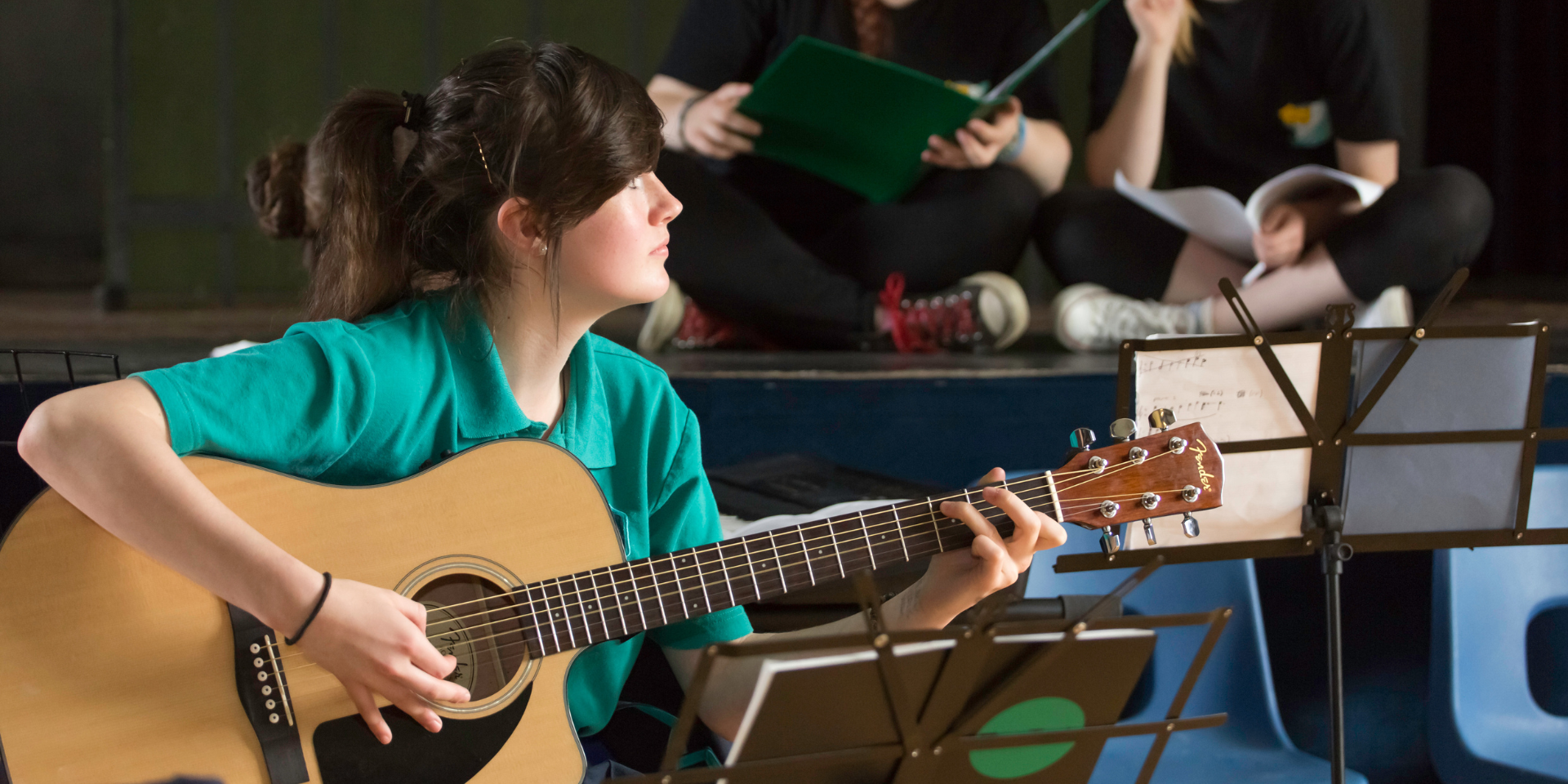
How Trinity's Music Certificate Exams embrace the nations love of British Pop Music
BY: Samantha Steele
01 May 2024
In 2023, Trinity College London commissioned a study asking the nation which piano tunes they wish they could play. Queen’s Bohemian Rhapsody topped the list with 32%, followed by Your Song, by Elton John and Imagine by John Lennon tied in second place, each with 24% of the vote. The top ten songs saw many popular British bands from the Beatles to Oasis and Led Zeppelin to Queen chosen as favourites.
Traditionally, pieces by popular artists were off-limits to students preparing for music exams, with a historical privilege on the works of white, European, male composers and performers. Trinity has always believed strongly in diversifying its music offer across all instruments, as in doing so, we properly represent the diverse, multi-cultural community we work with so that the next generation of young musicians are not unwittingly enculturated into a narrow perception of classical music, and the current inequalities therefore further perpetuated.
The Rock & Pop grade exams launched in 2012 and adopted an exam structure that, at the time, was considered radical; assessing skills normally associated with technical studies and tests within the context of playing authentic, contemporary pop songs. Taking piano as a further example, our most recent 2023 piano graded publications contain 55% western classical pieces, 16.4% from stage, screen and video games, 13.8% from pop and 14.8% from jazz and latin styles – what’s more, our 2021 piano publications remain valid too, giving an unrivalled 378 pieces, available in print and digital formats. We continue to work with organisations such as Black Lives in Music to ensure that we include the music – both newly commissioned and historical – of composers from varied cultural backgrounds, of all genders, and with other protected characteristics.
Alongside the grade exams, Trinity’s Music Certificate Exams allow students choosing a face-to-face exam to present a short recital of a fixed duration, rather than a set number of pieces. Whilst these can be taken by solo players selecting works from Trinity’s repertoire lists, they may also be used by ensembles of any size – trios, quartets or larger ensembles – making popular music an option for certification for choirs, orchestras and bands. Our Group Certificates allow recognition for the level of musicianship achieved in an ensemble and the Music Certificate Exam opens the door to groups. Below are the levels of exams available;
· Foundation – Equivalent Grade 3 Level – performance duration 8-10 mins
· Intermediate – Equivalent Grade 5 Level – performance duration 15-20 mins
· Advanced – Equivalent Grade 8 Level – performance duration 25-30 mins
Both solo and ensemble performance is assessed and awarded three separate marks for specific musical components, allowing candidates and groups to receive precise feedback about specific aspects of their performance. These musical components, shown below, are each marked out of 30;
· Accuracy and Fluency
· Technique
· Communication
These marks combine to give a total mark out of 90 for the performance. The exam is marked out of the 100 with the remaining 10 marks awarded for presentation which is split into three categories,
· Programme Planning (4 marks)
· Programme Notes (4 marks)
· Stagecraft (2 marks)
Programme planning involves thoughtful curation of pieces to showcase the performers' abilities, ensuring diversity and managing duration effectively. Programme notes provide candidates with the opportunity to craft biographies and offer insights into the selected pieces, enhancing their overall presentation skills. Stagecraft evaluates the performers' physical presence and engagement with the audience, adding an additional dimension to their performance beyond musicality.
Solo performers can also take Trinity’s Music Certificate Exams too as a different option to a graded exam – with the flexibility to choose pieces from the equivalent graded list, or the dedicated Certificate repertoire list for more common instruments such as piano, violin, and singing. Furthermore, up to 1/3 of the repertoire duration can be the candidate’s own choice, of the same level of musical and technical demand – meaning that the top tunes in the popularity study could be considered for the exam. This gives performers a real chance to show their own personality and musical interests in the exam setting.
In conclusion, Trinity’s Music Certificate Exams not only provide flexibility to accommodate popular music choices but also offer comprehensive assessment criteria tailored for ensemble performances. By embracing contemporary repertoire and providing structured evaluation, these exams empower musical groups to attain certification while refining their artistic expression and stage presence.
If you want to know more about Music Certificate Exams then please use this link to find the syllabus. Alternatively, email ukandireland@trinitycollege.com with your questions or to request more information.
Related posts
BY: Guest Writer
BY: Sue Clarke: Subject Expert - Drama




Comments & Replies